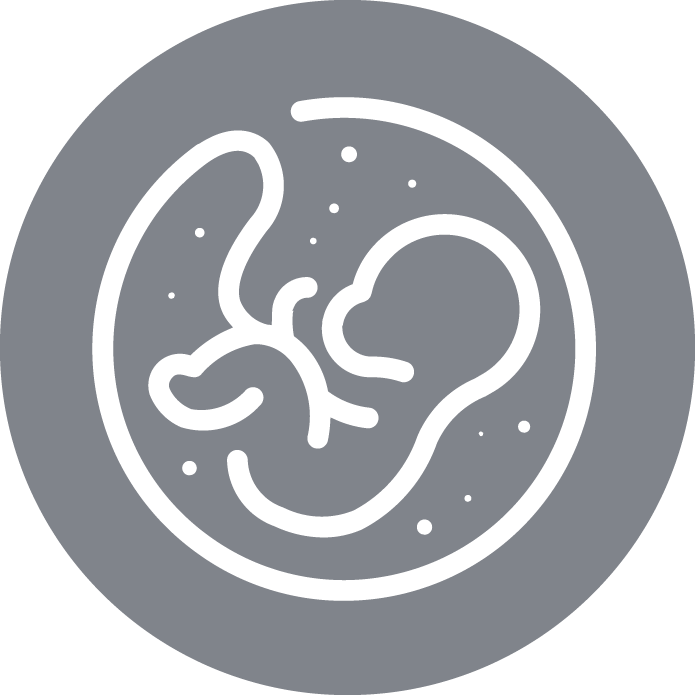Nutrition in reproduction
A balanced diet is essential for normal reproductive function. Menarche begins when a critical level of body fat is obtained. This body fat level is also responsible for the hypothalamic processes that occur at puberty and in reproduction.
Under-nutrition
The presence of ovulatory cycles depends on body fat levels. If these levels fall below a certain point, the woman will suffer altered gonadotropin secretion, inadequate ovarian stimulation, menstrual alterations and, therefore, primary or secondary amenorrhea. Normally, by recovering the minimum percentage of body fat the woman will also recover ovarian function.
In developed countries, under-nutrition is often self-imposed by very strict or restrictive diets, or by very intense physical exercise. However, this process is also present in developing countries due to poverty and lack of food.

If a woman becomes pregnant under these conditions, it could harm the mother and the fetus by increasing morbidity and mortality, and it may also have repercussions for the baby. Supplementation can help, but it does not compensate for under-nutrition during the stages of pre-conception. The patient in treatment must always regain the weight instead of undergoing a simple ovulation induction.
Women with a clinical history of anorexia suffer more miscarriages and more cases of hyperemesis gravidarum, anemia and fetal growth defects. Anorexia is also associated with more cesarean sections, postnatal complications and postpartum depression.
Over-nutrition
The prevalence of obesity and of overweight individuals is increasing annually in developed countries. As a result, we are also witnessing a significant increase in the cases of type 2 diabetes, cardiovascular disease, osteoarthritis, sleep apnea and reproductive dysfunctions.
Obesity and excess weight is associated with a more sedentary lifestyle, characterized by very little physical activity and an inadequate diet added to any possible cultural, psychological, or genetic factors.
The "O" syndrome (over nourishment, overproduction of insulin, ovarian confusion and ovulation disruption) refers to the effects that obesity has on reproduction that include:
- Menstrual disorders: amenorrhea, oligomenorrhea, menorrhagia
- Infertility: anovulation, low response
- Miscarriages
- Glucose abnormalities in metabolism
- Increased risk of obstetric complications such as gestational diabetes, pre-eclampsia, etc.
How can we prevent these situations?

It has now been proven that it is best to lose weight through diet and exercise before conception occurs, regardless of whether this conception is achieved by assisted reproduction or by a spontaneous pregnancy. A healthy lifestyle is encouraged in the couple and their future offspring with long term monitoring and psychological support.
Physicians and patients alike must be educated about the effects of obesity on reproduction and how to manage weight loss. A healthy lifestyle, essential for obtaining positive reproductive results and healthy offspring, will help to avoid any short and medium term complications.
Would you like to learn more about the role of nutrition in Assisted Reproduction?
- Online Course on Endocrine and Physiological Bases of Reproduction
- Advanced Online Course on Assisted Reproduction
- Official Master in Biotechnology of Assisted Human Reproduction
- Official Master in Biology and Technology applied to Assisted Human Reproduction
- Master's Degree on Theoretical Basis and Laboratory Procedure in Assisted Reproduction
- Personalized training



